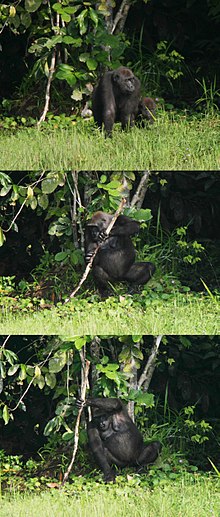Wikimedia Open Access chat
The open access movement is set to liberate scientific publishing. Science is contingent upon the free exchange of ideas; global communication networks enable it. Yet, in traditional publishing, copyright law is used to impede the distribution of even the most relevant scientific findings. Pioneering open access publishers such as the Public Library of Science and BioMed Central publish their findings under Creative Commons licenses -- specifically, licenses which permit free distribution, modification, and even commercial use.

These are the same principles of free content followed by the Wikimedia Foundation, the non-profit organization which operates Wikipedia and its sister projects. All Wikimedia project content is freely licensed, with the exception of fair use images. Wikipedia has quickly become one of the 10 largest websites in the world, receiving over 23,000 requests per second at peak load. With more than 1.5 million articles in English alone, the amount of content -- including, of course, countless scientific topics -- is staggering.
What are the synergies between those two movements? This is what we want to explore in a moderated dialogue. Specifically:
- Which open access licenses are compatible with Wikimedia content?
- What types of open access content are potentially relevant to Wikimedia projects?
- Which file formats, feeds and protocols should be used?
- How can we make sure that relevant content is detected and used?
- How could Wikimedia's reliability and accuracy potentially benefit from the open access community?
- Beyond Wikimedia, where do wikis as tools fit in the open access movement?
- Wikimedia and a position about "Open Access to cultural heritage"
- The impact of open access on global education, health, and economies of developing countries
- Edit this page and add your agenda item!
We will meet on Sunday, December 17 2006, 21:00 UTC (time conversion). The chat is set to have an official duration of 2 hours; after that, people will of course continue to be able to mingle. The chat will be moderated by initiator Erik Möller, who is a member of the Board of the Wikimedia Foundation.
Logging in
editTo join the chat, you can use an IRC client such as ChatZilla (a Firefox extension) and connect to the server irc.freenode.net. The channel is called #openaccess. Direct link irc://irc.freenode.net/openaccess
Alternatively, you can use a simple web interface provided here: http://wikiyouth.org/irc/irc.cgi -- make sure to change the user name, and to set the channel to #openaccess before logging in! Web interface is kindly provided by the Wiki Youth Association.
If you have any problems, you can reach coordinator Erik Möller by Skype under his username "Xirzon", or by e-mail under erik AT wikimedia DOT org.
I want to attend!
editIf you want to join, you can indicate so here beforehand (this is not mandatory but encouraged). Just click "edit" to the right of this section title, and add your name to the list below:
- Erik Möller
- Sage Ross
- nojhan
- PatrickD
- Polimerek
- Kipcool
- Peter Murray-Rust
- Alexander Wait Zaranek
- Geni
- John Schmidt
- Edward Mokurai Cherlin
- Michelle Lee
- Gaiapolis
- David.Monniaux
- °Bujar Kocani" http://eliolibrary.blogspot.com"
- Ral315
- Egon Willighagen http://chem-bla-ics.blogspot.com
- Phoebe Ayers
- Eric J. Lindblom PhD
Chatlog
editLog is available: http://scireview.de/wiki/openaccess/channel.log
Workgroups
editResources on Wikipedia
editNote: "Open Access" is often used with a narrowing meaning of open access to the fulltext of scientific publications. There is still considerable discussion about how this may be achieved. In principle OA implies BOAI but this is not always in full practice.